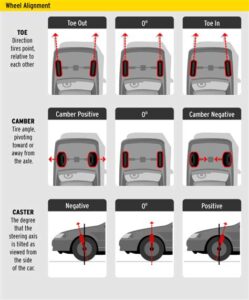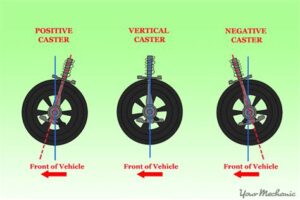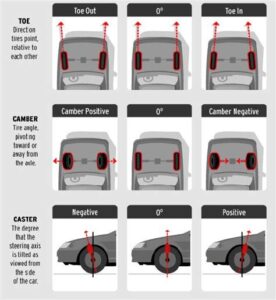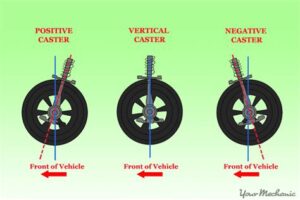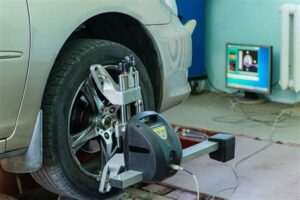Discover the significance of wheel alignment, especially for lowered cars. Learn about professional services, finding expert mechanics, and maintenance tips for optimal performance.When it comes to enhancing your car’s performance and aesthetics, lowering your vehicle can make a striking difference. However, with this modification comes a crucial yet often overlooked aspect: wheel alignment. Proper alignment is essential not only for optimum handling and tire longevity but also to ensure your safety on the road. Lowered cars present unique challenges that can affect steering, tire wear, and overall driving stability. In this blog post, we’ll explore the importance of wheel alignment for lowered vehicles, the benefits of seeking professional service, how to find expert mechanics nearby, and tips for maintaining alignment after making modifications. Whether you’re a car enthusiast or someone looking to improve your ride, understanding these factors will help you keep your lowered car performing at its best.
Importance of Wheel Alignment
Wheel alignment is a critical process that ensures your vehicle’s wheels are set to the optimum position, providing numerous benefits that extend beyond mere performance.
Proper wheel alignment enhances tire life, improves fuel efficiency, and ensures safer handling of your vehicle. When the wheels are aligned correctly, they make contact with the road in a way that reduces uneven wear on tires, directly impacting their longevity. This translates to significant cost savings in the long run.
Furthermore, wheel alignment is essential for the overall performance of your vehicle. Misalignment can lead to poor handling, causing your car to drift or pull to one side. This not only makes driving less enjoyable but also poses safety risks. Regularly checking and maintaining proper wheel alignment can help mitigate these issues, giving you peace of mind on the road.
Challenges of Lowered Cars
Lowering a car can enhance its aesthetic appeal and improve handling, but it comes with a unique set of challenges that owners must navigate. One of the primary issues is the reduction in ride comfort. Lowered suspension can lead to a harsher ride quality due to the decreased shock absorber travel, resulting in a stiffer feel on bumpy roads.
Another significant challenge is increased tire wear. When a car is lowered, the alignment angles change, potentially leading to uneven tire wear. Owners may notice faster deterioration of tires if proper wheel alignment isn’t performed after lowering.
Moreover, lowered cars are more susceptible to scraping. This can occur when coming off curbs, navigating steep driveways, or even while driving over speed bumps. Scraping can damage both the car’s undercarriage and suspension components, creating additional maintenance costs.
Ultimately, while lowering a vehicle can be visually appealing, it’s essential to remain aware of these challenges to maintain both performance and safety on the road.
Benefits of Professional Service
When it comes to maintaining your vehicle, particularly for lowered cars, investing in professional service can make all the difference. Proper wheel alignment is crucial for ensuring optimal performance, safety, and longevity of your vehicle. Here are some significant benefits of opting for professional assistance.
1. Expert Knowledge: Professional mechanics have extensive knowledge and training in handling wheel alignment for lowered cars. They understand the unique challenges and specifications that these modifications present, allowing them to provide tailored solutions.
2. Precision Tools: Specialized equipment used by professionals ensures that your wheel alignment is accurate. This precision minimizes wear on your tires and suspension, ultimately saving you money on future repairs.
3. Time Efficiency: Trying to align your wheels on your own can be time-consuming and often leads to errors. Professionals can quickly diagnose alignment issues, saving you valuable time while ensuring the job is done right the first time.
4. Long-Term Savings: Although professional services may come with an upfront cost, they can lead to significant long-term savings by prolonging the lifespan of your tires and suspension components. Proper alignment helps in preventing uneven wear and tear, which reduces the frequency and cost of replacements.
5. Enhanced Safety: Correct wheel alignment plays an essential role in the safety of your vehicle. By ensuring that your wheels are aligned correctly, you can prevent handling issues and enhance your vehicle’s stability, especially important for lowered cars.
In summary, investing in professional service for wheel alignment is not just about immediate results; it’s about ensuring your lowered car remains in excellent condition for years to come. The advantages in terms of expertise, efficiency, and overall savings make it a worthwhile decision.
Finding Expert Mechanics Nearby
Finding expert mechanics for your vehicle can be a daunting task, especially when you own a lowered car that requires specialized knowledge and skills. The alignment of your vehicle’s wheels is crucial for stability and safety, and it’s important to choose a mechanic who understands the distinct challenges that come with modified suspensions.
Here are some tips to help you find the right mechanic in your local area:
- Do Your Research: Use online resources like Google or Yelp to look for highly-rated mechanics specializing in alignments.
- Ask for Recommendations: Friends, family, or local car clubs can provide recommendations based on their own experiences with reliable mechanics.
- Check Qualifications: Look for certifications or affiliations with automotive organizations that indicate expertise in performing alignments on lowered vehicles.
Additionally, many auto shops now have websites where you can read reviews and even check prices for alignment services. Don’t hesitate to reach out to potential mechanics with specific questions regarding their experience with wheel alignments for lowered cars. This can help you gauge their knowledge and commitment to quality service.
Remember, maintaining proper wheel alignment for a lowered car is not just about performance; it also affects safety and tire life. Therefore, investing time in finding a qualified mechanic nearby is essential for keeping your car in top condition.
Maintaining Alignment After Lowering
When you decide to lower your car, maintaining proper wheel alignment becomes crucial for ensuring optimal performance and safety. Lowering your vehicle affects the geometry of the suspension, which can lead to misalignment. This can cause uneven tire wear and handling issues, making it essential to pay attention to your wheel alignment after making such modifications.
After lowering your car, it’s important to check the alignment settings. Many drivers are not aware that adjustments like camber, toe, and caster angles may need to be modified. Here’s a quick breakdown of why these adjustments matter:
| Adjustment Type | Importance |
|---|---|
| Camber | Influences tire contact with the road. Too much negative or positive camber can cause uneven tire wear. |
| Toe | Affects how your tires travel during motion. Proper toe alignment ensures even wear and improves handling. |
| Caster | Impacts steering stability and weight distribution. Adjusting caster can enhance cornering performance. |
It’s also advisable to regularly schedule alignment checks with a professional mechanic, especially after any changes to the vehicle’s suspension or load. Professional service can provide a thorough assessment and realignment to keep your vehicle correctly aligned, ensuring a smoother ride and prolonging the life of your tires.
Frequently Asked Questions
What is wheel alignment and why is it important for lowered cars?
Wheel alignment is the adjustment of a vehicle’s suspension to ensure that all four wheels are pointed in the right direction. For lowered cars, proper alignment is crucial because it helps prevent uneven tire wear, maintains optimal handling, and ensures safety during driving.
How does lowering a car affect its wheel alignment?
Lowering a car alters the angles of the suspension components, which can lead to misalignment. This can affect camber, caster, and toe settings, necessitating a professional alignment to maintain proper handling and tire wear.
Where can I find wheel alignment services for lowered cars near me?
You can find wheel alignment services for lowered cars by searching online for local auto repair shops that specialize in custom vehicles or suspension work. Websites like Yelp or Google Maps can also provide reviews and ratings to help you choose a reputable service.
How often should I get my lowered car’s wheel alignment checked?
It’s recommended to have your wheel alignment checked every 6,000 to 10,000 miles or whenever you notice uneven tire wear, a steering wheel that isn’t centered, or if the vehicle pulls to one side.
What are the signs that my lowered car needs a wheel alignment?
Signs that your lowered car may need a wheel alignment include uneven tire wear, the steering wheel being off-center, the car pulling to one side, and vibrations in the steering wheel while driving.
Can I perform a wheel alignment myself on a lowered car?
While it is possible to attempt a DIY wheel alignment using basic tools, it is generally recommended to have it done by a professional. They have specialized equipment to measure and adjust the angles accurately, ensuring safety and optimal performance.
What can happen if I neglect wheel alignment on my lowered car?
Neglecting wheel alignment on a lowered car can lead to several issues, including premature tire wear, decreased fuel efficiency, compromised handling, and potential damage to suspension components, resulting in costly repairs.
